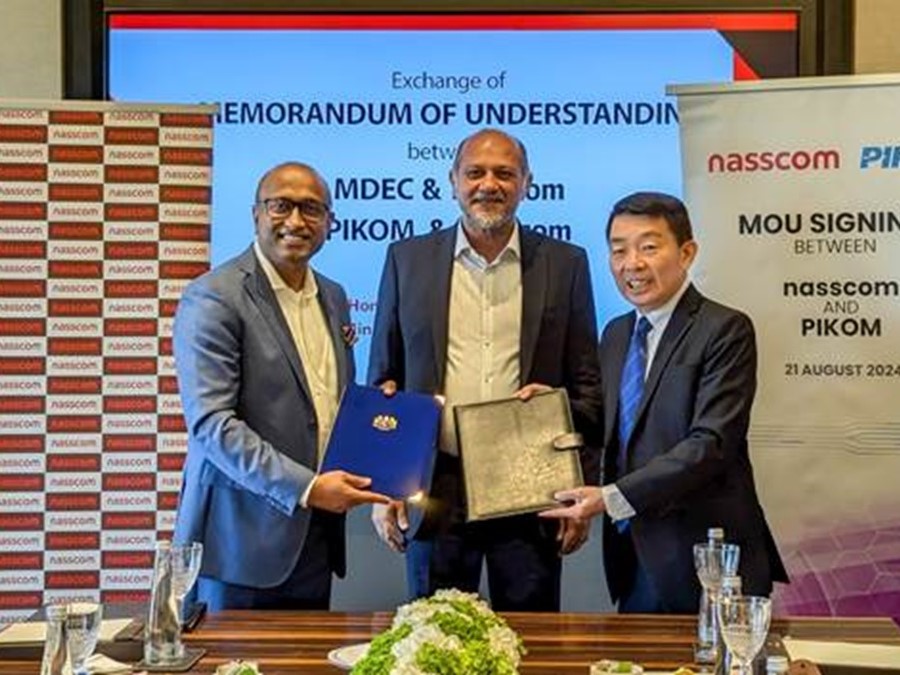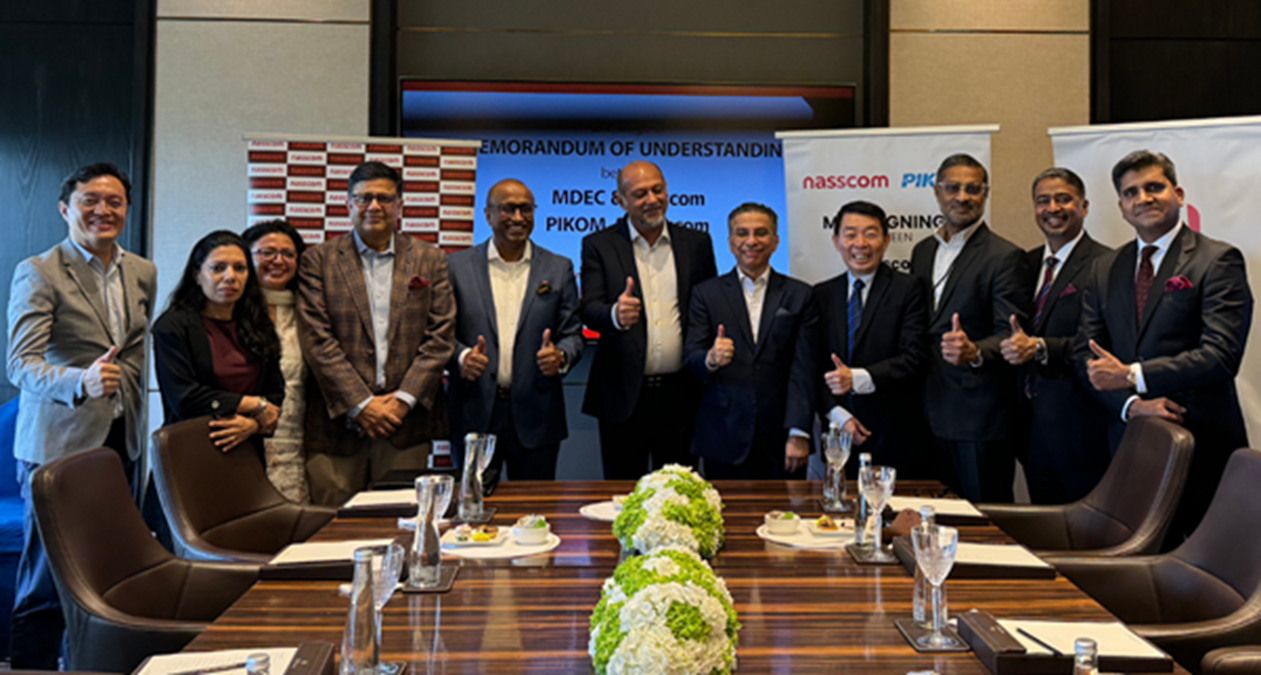PIKOM, the national technology association of Malaysia, is proud to announce the signing of a strategic memorandum of understanding (MoU) with nasscom, the premier trade body and chamber of commerce of the technology industry in New Delhi, India on 21 August 2024. This partnership is set to create significant opportunities for Malaysia’s digital economy, reinforcing the nation’s standing in the global tech landscape.
The MoU was signed during the state visit of the Prime Minister of Malaysia, Datuk Seri Anwar Ibrahim, highlighting the deepening ties between Malaysia and India in the technology sector. The event was graced by Gobind Singh Deo, Digital Minister of Malaysia.

The Digital Ministry recently announced that seven global Indian companies with a presence in the country have committed to train and hire at least 5,000 Malaysians. This follows the signing of a memorandum of understanding between the Malaysia Digital Economy Corporation (MDEC) and nasscom at the same event in New Delhi.
PIKOM will leverage this collaboration with nasscom to support this effort. The MoU marks a crucial step in PIKOM’s efforts to further elevate Malaysia’s digital economy by fostering innovation, enhancing market access, and strengthening bilateral relations between Malaysia and India.
The key areas of focus under this MoU include:
- Facilitating Mutual Exchange of Information: Both parties will exchange insights on the tech industry landscapes of India and Malaysia, including recent shifts, challenges, and potential growth areas. This exchange will enable companies in both nations to better understand and navigate each other’s markets.
- Organising and Supporting Collaborative Events: Plans to organise and support virtual and in-person events to promote greater collaboration between Malaysian and Indian technology companies.
- Engaging Subject Matter Experts: nasscom and PIKOM will invite industry experts to share case studies and provide advice on growth strategies, best practices, and other relevant topics, helping companies in both countries to achieve greater success.
- Fostering Networking Opportunities: The agreement includes provisions for organising networking opportunities between Indian and Malaysian IT companies, focusing on collaboration, research and development, and joint go-to-market strategies.
- Creating Special Interest Groups: A Special Interest Group will be established to channelise joint industry positioning for the Malaysian market, aiming to enable ease of doing business and promote collaborative efforts.

Ong Chin Seong, PIKOM chairman, stated, “We are thrilled to strengthen our cooperation with nasscom through this MoU. Just as the relationship between Malaysia and India has evolved over the years, we aspire to grow this to a stronger comprehensive strategic partnership. Through knowledge sharing and joint initiatives, we aim to create a more vibrant and interconnected ecosystem”.
Rajesh Nambiar, chairperson of Nasscom, added, “This MoU signifies a new chapter in the relationship between the Indian and Malaysian tech industries. We are committed to deepening this collaboration, which will not only enhance market opportunities for both nations but also drive innovation and growth in the region.”
Source: PIKOM (Press Release)

